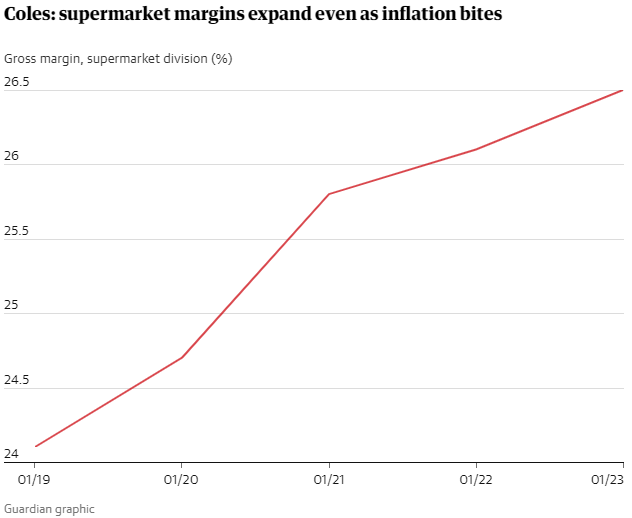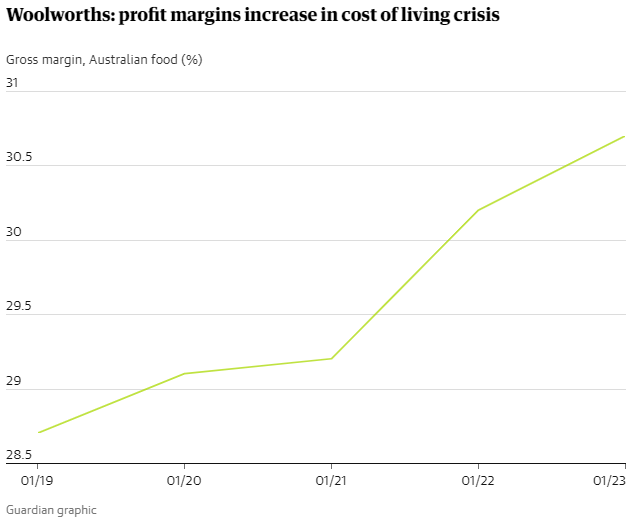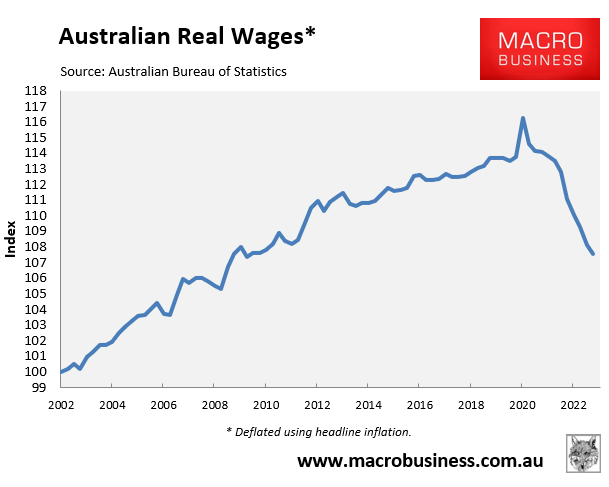Last month, The Australia Institute (TAI) think tank slammed the Reserve Bank of Australia (RBA) of a “dereliction of duty” by rejecting the role of excess profits as a cause of inflation.
The TAI report “showed that 69% of excess inflation (above the Reserve Bank’s 2.5% target) since end-2019 arose from higher unit corporate profit margins, while only 18% was due to labour costs”.
It showed that “by far the biggest profits were recorded in the mining sector, where corporate operating profits surged 89% since the onset of the pandemic”.
However, other strategic sectors have also shared in the profiteering, including the wholesale trade, manufacturing and transportation:

“In these strategic industries, businesses could exploit supply chain disruptions, consumer desperation, and oligopolistic market power to increase prices well beyond production costs”, TAI argued.
The authors concluded by arguing that “policy-makers need to acknowledge the role of record profits in driving recent inflation – and develop alternative policy responses (such as price caps in strategic markets, excess profit taxes, and targeted fiscal support for working and low-income households) to manage current inflation in a fairer and more effective way”.

New media analysis of the financial accounts of Coles and Woolworths over a five-year period reveals that the two big supermarket chains increased their profit margins, with the period covering both the pandemic and the cost-of-living crisis.
George Boubouras from K2 Asset Management claims that some industry sectors are getting close to “oligopolistic pricing power”, and that prices need to start falling if inflation is to ease.
Coles’ supermarket division’s gross margins climbed from 24.7% shortly before the pandemic to 26.5% in the most recent statement:

Woolworths’ Australian food division’s margins increased from 29.1% prior to the pandemic to 30.7%:

Several large firms reported stellar profits in the December half.
In addition to miners and the two major supermarket chains, Commonwealth Bank pulled in a record $5.15 billion profit over the half, while Qantas record half-year earnings of $1 billion.
The fact is that profiteering by corporations raising prices to fatten their margins is the main driver of inflation, not Australian workers, who are experiencing the fastest rate of regress on record:

The above data also demonstrates why the Albanese government must play a stronger role in reducing inflation by putting more pressure on the gas and coal cartels to reduce energy prices.
The blunt instrument of interest rates won’t cut it.

